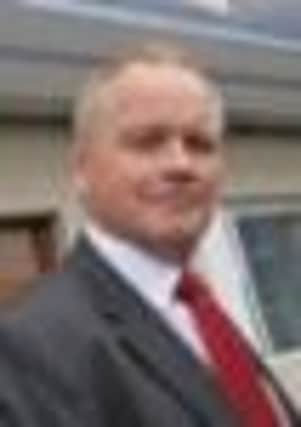Dissident support slammed by top politician Ringland


Former Ireland rugby player and Policing Board member Trevor Ringland urged people to support the rule of law and to ‘stop undermining the democratic structures to meet populist demands’.
This follows calls last week by Gerry Conlon, one of the Guildford Four who had called for the killers of police officer Stephen Carroll to be freed.
Advertisement
Hide AdAdvertisement
Hide AdConstable Carroll was shot dead close to Lurgan in March 1999. Former Sinn Fein Councillor Brendan McConville and John Paul Wooton were found guilty of his murder.
And after the murder in Lurgan of prison officer David Black, Mr Ringland spoke out against campaigns such as those to free Lurgan man Martin Corey, Marian Price and Gerry McGeough.
Rejecting calls by Gerry Conlon, Mr Ringland said: “No harm to Gerry Conlon, but they have been through due process and they have been convicted. Our courts time and again have been shown to be very fair, in the difficult situation that they face, they have over the years done an excellent job.”
He called on Mr Conlon ‘to step back and leave it to those people’s lawyers’.
Advertisement
Hide AdAdvertisement
Hide AdMr Ringland highlighted that judges and lawyers were murdered during the Troubles, and this was part of the high price to be paid for the standard of justice provided by the state.
Commenting on Republican campaigns on both sides of the border, Mr Ringland said: “In a democracy people are entitled to protest and that is recognised as fundamental to any democracy, but there has to be a serious challenge going out - they have their lawyers and they have the right to argue their case in court and they have their own behaviour to look at too.”
Mr Ringland, a Conservative Party member who left the Ulster Unionists out of unhappiness at issues including the then leader Tom Elliott’s refusal to commit to going to a GAA final in Dublin if an Ulster team were to take part, pointed out that many paramilitary prisoners had been given a second chance. Some were now ‘sailing close to the wind’ in terms of their own responsibilities.